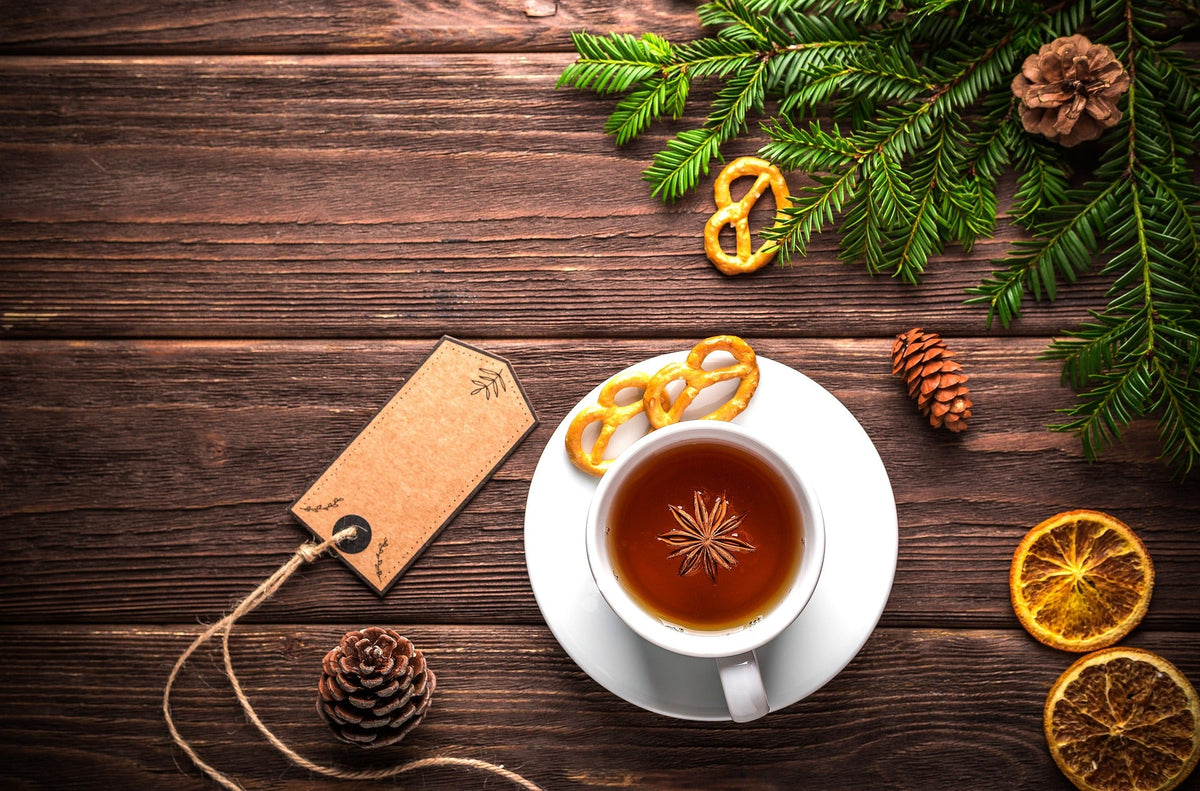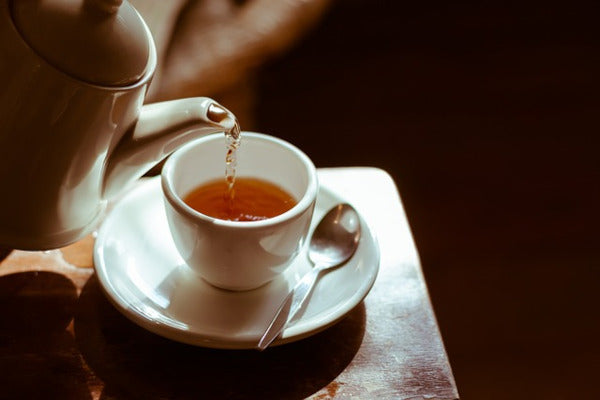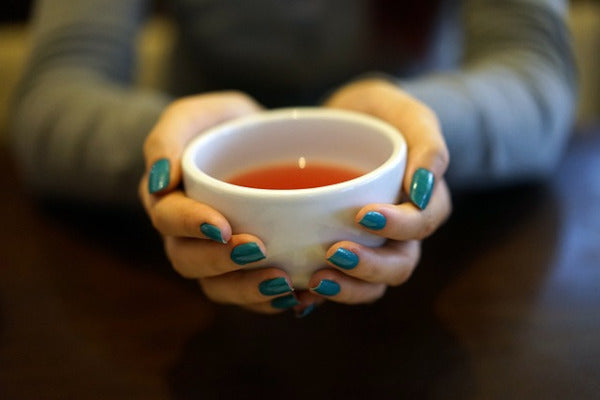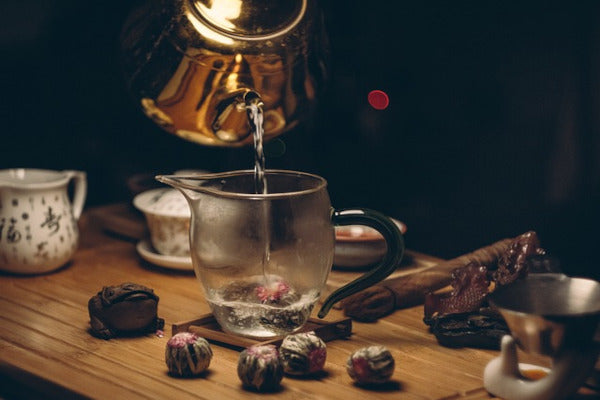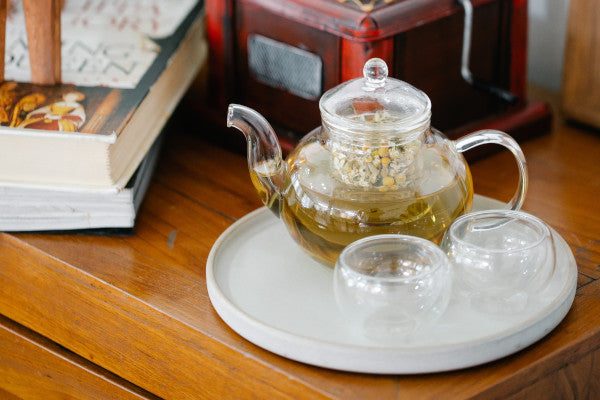What teas and herbs should I avoid during pregnancy and breastfeeding? The use of herbs in teas , infusions, and home remedies is part of popular culture. By 1552, no fewer than 1,200 herbs were known. Many people in Spain regularly use infusions and home remedies.
However, just because herbs are natural products doesn't mean they're completely safe during pregnancy. In fact, some herbs can have effects as strong as some medications. This makes sense, because herbs are the basis of many medicines. Many of the chemicals in herbs cross the placenta and can harm the baby, or they can pass into breast milk.
Therefore, it's important to be very cautious. For example, a seemingly harmless herb like aloe, which is often used as a laxative to treat constipation, can cause uterine contractions. If you want to use herbs to treat some pregnancy discomforts, such as heartburn, you should consult your gynecologist. Furthermore, herbs can enhance or diminish the effect of certain medications, so it's important to always inform your doctor if you're taking herbs.
The list of herbs that may have effects on pregnancy is much longer. This table only lists the most commonly used ones. There are other herbs that are less common, but taken in large quantities can cause contractions or produce other harmful effects. Therefore, it is highly recommended that you consult your gynecologist before taking any herb.
At Tétique, we pride ourselves on providing high-quality herbal teas . We specialize in offering a wide variety of options to suit our customers' tastes and needs. From relaxing herbal teas to energizing blends, we have a carefully curated selection to deliver a unique experience with every cup. Our teas are prepared with natural ingredients and are known for their exceptional flavors and health benefits. Trust us as your herbal tea supplier and discover how we can help you offer your customers an unparalleled experience filled with aromas and beneficial properties.
You can print it and have it ready to hand.
Herbs you need to be careful with during pregnancy:
| Grass | Effect |
|---|---|
| Barberry, barberry (Berberis vulgaris) | Stimulates uterine contractions and bleeding. |
| Wormwood, aluinos (Arthemisia absinthium) | Causes abnormalities in the fetus. Stimulates bleeding. Passes into breast milk. |
| Angelica (Angelica arcangelica) | Stimulates bleeding. |
| Arnica (Arnica montana) | Stimulates bleeding. |
| Arraclán fragula (Rammus frangula) | It stimulates the intestine and can cause contractions in the uterus. |
| Arzolla, milk thistle, Mary thistle (Silybum marianum) | Stimulates bleeding. |
| Shepherd's purse (Capsella bursa pastoris) | Stimulates uterine contractions. |
| Chuchupate, field parsley, lovage (Ligusticum porteri) | Stimulates bleeding. Passes into breast milk. |
| Blue cohosh (Gaulophyllum thalictroides) | Stimulates uterine contractions. |
| Comfrey, symphytum (Symphytum officinale) | Passes into breast milk. Toxic to the baby. |
| Thrasher, huitlacoche (Ustilago maydis) | Stimulates uterine contractions. |
| Maidenhair, avenca, adianthus (Adiantum capillus-veneris) | Stimulates bleeding and uterine contractions. |
| Chacara, canafistula (Cassia fistula) | It stimulates the intestine and can cause contractions in the uterus. |
| Damiana (Turnera diffusa) | Stimulates bleeding. |
| Dioscorea (Dioscorea villosa) | Stimulates uterine contractions. |
| Dong quai (Angelica sinensis) | Stimulates bleeding. |
| Epazote, ragweed (Chenopodium ambrosioides) | It stimulates bleeding and contractions due to its laxative effect. It passes into breast milk. |
| Stafiate (Artemisia vulgaris) | Causes abnormalities in the fetus. Stimulates bleeding. Passes into breast milk. |
| Eucalyptus (Eucalyptus globulus) | Stimulates bleeding. Passes into breast milk. |
| Fárfara, cat's claw, mule's foot (Tussilago farfara) | It passes into breast milk. |
| Devil's claw, devil's claw (Harpagophytum procumbens) | Stimulates uterine contractions. |
| Bearberry (Arctostaphylos uva ursi) | Reduces the amount of blood that reaches the uterus. |
| Gingko biloba (Gingko biloba) | It passes into breast milk. |
| Black cohosh (Cimifuga racemosa) | Stimulates bleeding. Passes into breast milk. |
| Hyssop (Hyssopus officinalis) | Stimulates bleeding. |
| Cassia angustifolia | Stimulates uterine contractions. Passes into breast milk. |
| Big bitter man (Quassia amara) | Stimulates uterine contractions. |
| Mallow (Malvestrum sylvestris) | It passes into breast milk. |
| Manaca (Brunfelsia uniflorus) | Stimulates bleeding and uterine contractions. |
| Mandrake, podophyllum (Phodophyllum peltatum) | Fetal abnormalities. Stimulates uterine contractions. Stimulates bleeding. Very toxic. |
| Horehound, masto (Marrubium vulgare) | Stimulates bleeding. |
| Matarique (Cassia angustifolia) | Stimulates bleeding. Passes into breast milk. |
| Yarrow (Achillea millenfolium) | Stimulates bleeding. |
| Myrrh (Commiphora myrrha) | Stimulates uterine contractions. Passes into breast milk. |
| Orozuz, licorice (Glycyrrizha glabra) | It passes into breast milk. |
| Palo bañón, cascara sagrada, ladierno (Rammus purshiana) | Stimulates uterine contractions. Passes into breast milk. |
| Pennyroyal (Mentha pulegium) | It produces abnormalities in the fetus. |
| Popotillo, canutillo, ephedra, Ma Huang, Mormon tea (Ephedra vulgaris) | It reduces the amount of blood that reaches the uterus. It passes into breast milk. |
| Red cinchona (Cinchona ledgeriana) | Stimulates uterine contractions. |
| Rue (Ruta graveolens) | Stimulates bleeding. Passes into breast milk. |
| Rhubarb (Rheum palmatum) | Stimulates bleeding. Passes into breast milk. |
| Bloodroot, red root, lithosperm (Sanguinaria canadensis) | Stimulates bleeding. Passes into breast milk. |
| Sávila, alcibar, aloé vera (Aloe socotrine) | Stimulates bleeding. Stimulates intestinal muscles and can stimulate contractions. Passes into breast milk. |
| Goldenseal, buttercup, hydraste (Hidrastis canadensis) | Stimulates uterine contractions. |
| Tansy, Wormwort (Thuja occidentalis) | Causes abnormalities in the fetus. Stimulates uterine contractions and bleeding. Passes into breast milk. Very toxic. |
| Thuja (Thuja occidentalis) | Stimulates uterine contractions and bleeding. Passes into breast milk. Very toxic. |
| Sarsaparilla (Smilax officinalis) | Stimulates bleeding. Passes into breast milk. |
Source : http://www.babycenter.es/a900631/hierbas-que-debes-evitar-durante-el-embarazo-y-la-lactancia
In contrast to this list, if you're craving a healthy infusion, you can try raspberry leaf infusion , rich in vitamin C. When taken during the third trimester, it helps with labor by strengthening the pelvic muscles. To treat digestive discomfort, organic chamomile infusion is perfect. If you're experiencing nausea, you can soothe it with ginger infusion . Always opt for organic infusions , which are healthier and safer.


